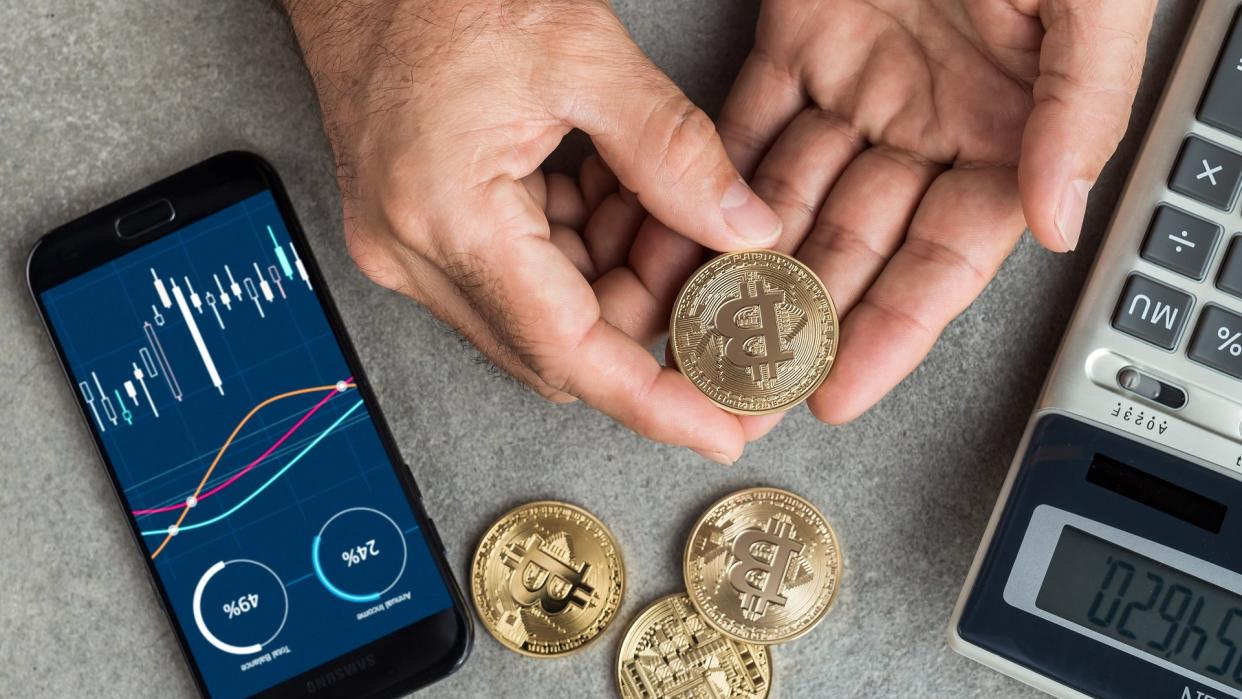Lost Money on Crypto in 2023? This Trick Could Help You Pay 0% Capital Gains Tax

At a time when many investors are looking at ways to curb their tax bill, for those holding crypto, there is at least one common strategy to do so.
See: ChatGPT Was Given $20K To Invest In Stocks and Crypto — Here’s How It Made $2,000 in a Month
Find: What To Do If You Owe Back Taxes to the IRS
Following the beating the crypto market took in 2022 — which translated into huge losses and bruised confidence in the crypto space writ large — many investors used the so-called “tax loss harvesting” strategy.
But as 2023 saw crypto markets fare better, investors could consider strategically selling profitable crypto held in brokerage accounts, known as “tax gain harvesting,” as CNBC reported.
It’s important to note that the Internal Revenue Service (IRS) says that for federal tax purposes, virtual currency is treated as property. “General tax principles applicable to property transactions apply to transactions using virtual currency,” according to the IRS. As such, crypto is not subject to all equities rules.
However, this means that capital gains and losses need to be reported and will generally have a consequence on your taxes.
And to put this in context, Bitcoin was at $37,200 on Nov. 20, up 124.7% in the past year, according to CoinGecko data.
Yet, it’s still 46% down from its all-time high of $68,789.63, reached two years ago on Nov. 10, 2021, according to CoinMarketCap.
Also: Top 7 Countries with Zero Income Tax
What Is Tax Gain Harvesting?
“Here’s the deal with tax gain harvesting in the crypto world: Imagine you bought some Bitcoin a while back and now it’s worth more,” said Jeff Rose, CFP and founder of Good Financial Cents. “What you do is sell some of that Bitcoin and then buy it back. This move bumps up your ‘cost basis’ — basically, the amount you’ll say you paid for it when you sell it in the future.”
Rose further explained that it’s like updating your investment’s starting line. If your income is on the lower side, you might not pay any taxes on these gains right now.
“It’s a clever way to pocket those gains without a tax hit and set yourself up for potentially less tax pain down the road,” he added.
Who Can Benefit from Tax Gain Harvesting?
If you owned the cryptocurrency in question for one year or less before spending or selling it, any profits are typically short-term capital gains — which are taxed at your ordinary income rate, according to TurboTax. On the other hand, if you held said crypto for more than one year, any profits are typically long-term capital gains, subject to long-term capital gains tax rates.
For 2023, there is 0% long-term capital gains rate for individuals with taxable income of $44,625 or less for single filers and $89,250 or less for married couples filing jointly, according to TurboTax.
In turn, according to Rose, this strategy is a big win for people who aren’t hitting high income numbers.
“It’s a smart move if you think your income might go up later, pushing you into a higher tax bracket. But for those already in the higher tax brackets, this tactic might not be as sweet since they’d have to pay up on those capital gains now,” he said.
Is Tax Gain Harvesting a Wise Move for Crypto Investors?
It can be a savvy move, especially if you’re on the lower end of the income scale, as it’s an opportunity to secure those crypto gains “without getting dinged by the taxman,” said Rose.
“But for higher earners, the immediate tax hit might outweigh future benefits. Also, don’t forget that crypto prices can be wildly unpredictable,” he said. Rose explained that, as with any tax strategy, it’s a good idea to have a chat with a tax expert.
Christopher Alexander, chief analytics officer of Pioneer Development Group, explained that one reason to engage in tax gain harvesting is, if you sell and immediately repurchase, future capital gains are calculated at the new value of your crypto when you repurchased it.
“Imagine this scenario: you bought Bitcoin at $18,000 lowest this year and then sell and repurchase it at $36,000,” he said. “Then let’s say Bitcoin then doubles over the next year and you sell at $72,000 per BTC.”
If you followed this strategy, he said, you would only pay taxes on the $36,000 gain, effectively avoiding paying taxes on the initial $18,000 worth of gains.
“If you make less than $44,625 — or if you are in a higher bracket but have large amounts or crypto or use an aggressive tax strategy — this can be a very effective approach,” he concluded.
More From GOBankingRates
This article originally appeared on GOBankingRates.com: Lost Money on Crypto in 2023? This Trick Could Help You Pay 0% Capital Gains Tax
